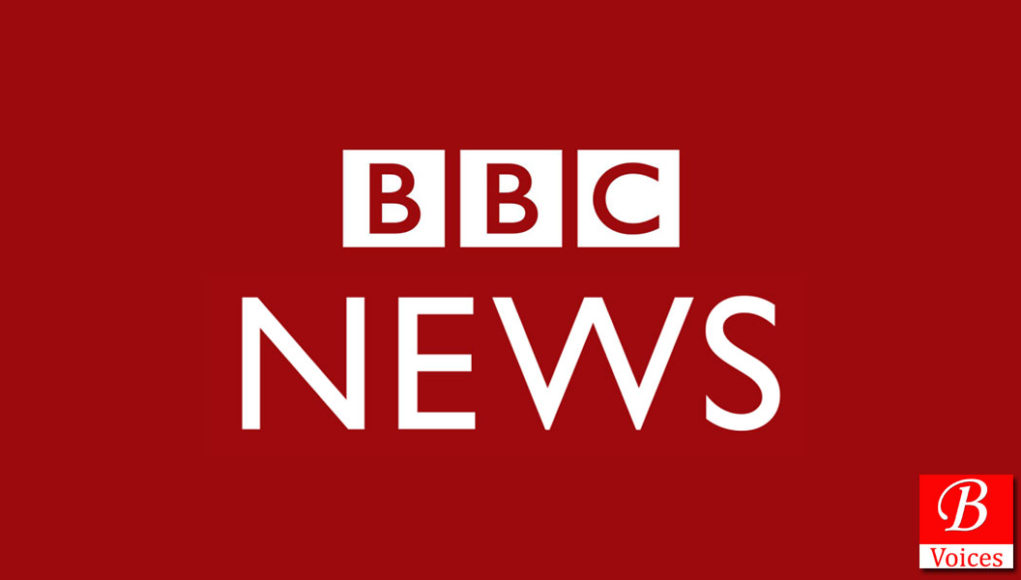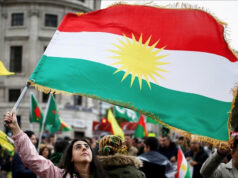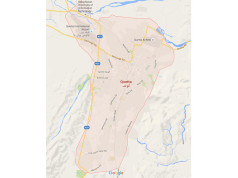The BBC’s 100 Women season returns this autumn, shining a spotlight on women’s experiences around the world with three weeks of special programmes, features, big name interviews and digital content across the BBC’s UK and international TV and radio services and online.
Returning for the 6th year, the 2018 season will reflect what has been a momentous year for women’s rights around the globe. From the #metoo revelations to women gaining the right to drive in Saudi Arabia, and from the abortion vote in Ireland to the unprecedented numbers of female candidates in the US midterms, the last 12 months have seen women around the world standing up and speaking out.
The 2018 season will focus on femicide and domestic violence, as well as the trailblazers who have sought to change the world around them. And 50 years since women protesting outside a beauty pageant in the US threw their bras into a trash can, 100 Women will be creating a ‘digital freedom trash can’ – to find out what objects women feel oppressed by in 2018.
Fiona Crack, Founder and Editor of 100 Women: “Since its inception in 2013, 100 Women has put women’s international stories front and centre, shedding light on the issues affecting their lives, and underscoring their diverse achievements. This year we hear from women all over the world motivated to convert the power of anger into change for others and those affected by and challenging violence against women.”
100 Women List and Big Interviews
The season kicks off on November 19th when this year’s 100 Women List will be announced, celebrating inspirational and unheard women from across the globe – from high profile names to unsung heroes. In-depth ‘Big Interviews’ with five high profile names on the list will air on BBC World News (WN) and World Service English (WSE), giving insight into their experiences, careers and achievements across the spheres of politics, finance and the arts.
Femicide Watch
A key focus of this year’s season will be investigating femicide and domestic violence around the world. The figures for the number of women killed by a partner or family member are shocking, but vastly underreported. 100 Women will publish new research on the number of women killed around the world by their partners, and explore the human stories behind the data in a host of documentaries, short films and online journalism. In El Salvador, we follow the story of a female journalist brutally murdered in April 2018, and whose husband has been charged with aggravated femicide. Her death marked the 152nd femicide in El Salvador this year; since April that number has grown to 300 women in 2018. Her murder triggered outrage across the country and the President announced a national crisis. Reporter Patricia Sulbaran heads to El Salvador to gain a deeper understanding of why it has become one of the world’s most dangerous countries to live in as a woman. She also meets the woman who has been appointed special prosecutor against femicides and is trying to put a halt to the wave of murders that has made the country infamous (WN and WSE). Other stories explored in short form films and digital content will look at a clandestine network helping survivors of domestic violence in Iraq; a shelter in the US that takes in women and their pets; explore how disability can make it harder for women to leave abusive relationships; and look at an intervention scheme for new fathers in Rwanda aimed at reducing domestic violence. A radio documentary will take a look at how Argentina is on the brink of a feminist revolution in politics, art, and even the traditional national dance – tango – but it’s a struggle not easily won in a country infamous for its machismo and struggling with gender violence (WSE). And The Conversation will bring together two women from Mexico and Pakistan to talk about their experiences of trying to fight femicide in their respective countries (WSE).
Trailblazers
Following a year that saw gender politics catapulted to the fore and many women across the world expressing their anger at inequalities and sexual harassment, the season will also explore the trailblazing women who have reached a ‘boiling point’ and responded by trying to make a change in the world around them. A two-part series ‘Trailblazers’ on BBC World News will explore these stories – from the women in Iran who protested against compulsory hijabs, to the Irish mother who exposed the cervical cancer scandal, and the women who took on South Korea’s spy cams, and hear from the women involved who reflect on the moment they decided to stand up and the change they inspired.
Freedom Trash Can
50 years since a group of women protesting outside a Miss America pageant took off their bras and threw them in a trash can, what are the items that women in 2018 would like to cast off? The protestors outside Miss America wanted to set fire to the contents of the trash cans but weren’t allowed, yet it still spawned the famous – and mythical – ‘bra-burning’ phrase synonymous with the 1960s feminist movement. 100 Women will create a ‘digital freedom trash can’ and invite women from all over the world to suggest the items they think are holding them back. At the end of the 100 Women season, an event (location TBC) will bring together fashion designers, investors, scientists who will attempt to ‘recycle’ the trash – turning objects women feel oppressed by into something to be embraced again.
Share your comments!








